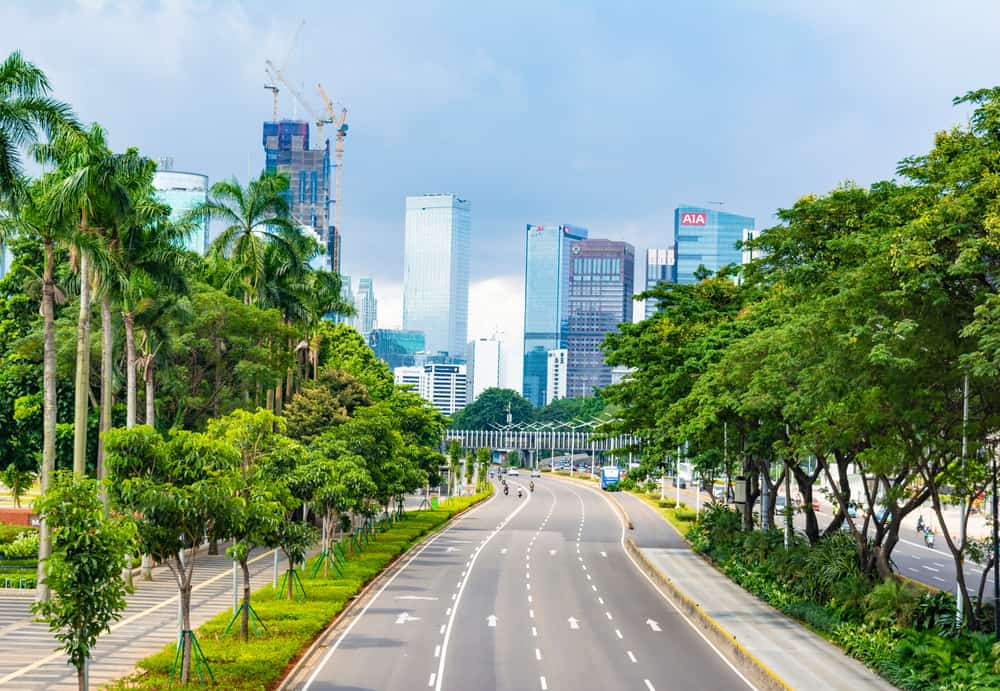All sectors affected as Indonesia fights COVID-19, says F&B industry association head
JAKARTA – There is not a single F&B sector that will benefit from the COVID-19 pandemic, says Adhi S Lukma, the chairperson of the Indonesian Food and Beverages Association (GAPMMI).
“We held a survey on April 2 among our members, where 60% of them said their sales dropped by around 30%, others dropped by 15%,” Adhi told Salaam Gateway.
Although there is a rise in demand in big cities such as Jakarta and Surabaya for certain categories such as cooking oil, seasoning, biscuits, and instant noodles, overall demand has plunged both in traditional markets and supermarkets. 73% of GAPMMI’s 410 members operate in traditional markets and the rest in supermarkets.
In the capital Jakarta, the government on Apr 15 imposed large-scale social distancing and restrictions (PSBB), including the shutdown of non-essential workplaces.
“[The plunge in demand] is due to the shutdown of hotels and restaurants, affected by the PSBB, and the shutdown also affects traditional markets,” added Adhi.
“This time it is different from previous crises where some sectors benefited while others suffered. But compared to hotels, restaurants and other tourism-related businesses, we are still in a better situation,” said Adhi, who is also President Director of food group PT Niramas Utama (INACO).
Rudolf Tjandra, CEO and President of seasoning producer PT Sasa Inti told Salaam Gateway there is a shortage of raw materials as disrupted global supply chains hit imports.
The volatility of the local currency doesn’t help. The rupiah has weakened against the U.S. dollar, hovering around 17,000 rupiah, and pushing up the prices of imports.
Rudolf says his sector will still see growth this year even if that increase is significantly slashed.
“Since we are in the staple food seasoning category, I believe this year there is still growth,” he said.
The CEO expects 7% sales growth this year from the initial forecast of 21%.
He estimates a 10% volume drop in sales during the pandemic period since demand from restaurants have all but dried up. Last year, PT Sasa Inti’s sales growth hit 18% in all categories including MSG, coconut milk, seasoned flour, and mayonnaise. The company is a market leader in all its segments.
The company has stepped up to activate its own e-commerce channels to meet demand from customers who cannot venture out to stores because of the social restriction rules.
“Today we deliver stock goods, they sell out on the same day since everything moves so fast now,” said the CEO. He said the company created its COVID-19 taskforce a month before the government announced emergency measures (on Mar 16), and started providing employees with vitamins, ginger drinks and hand sanitisers.
With the holy month of Ramadhan less than a week away, the Sasa Inti CEO is not optimistic the company will see the same level of sales amid the pandemic.
“Usually there is a significant sale increase during Ramadhan and the Eid al Fitr season, two times at least compared to other months. But this year I am afraid to state any number, there are too many uncertainties at the moment.”
PT Sasa Inti plans to recruit as many new employees as possible to cover the work of current employees affected by the COVID-19. Last month, the company acquired 82,274 square metres of factory space and hired 800 employees in South Minahasa, Sulawesi. With this additional facility, the company now operates three factories, including the one in Cikarang and Probolinggo, and has more than 4,000 employees on its payroll.
(Reporting by Yosi Winosa; Editing by Emmy Abdul Alim emmy.abdulalim@salaamgateway.com)
© SalaamGateway.com 2020 All Rights Reserved

